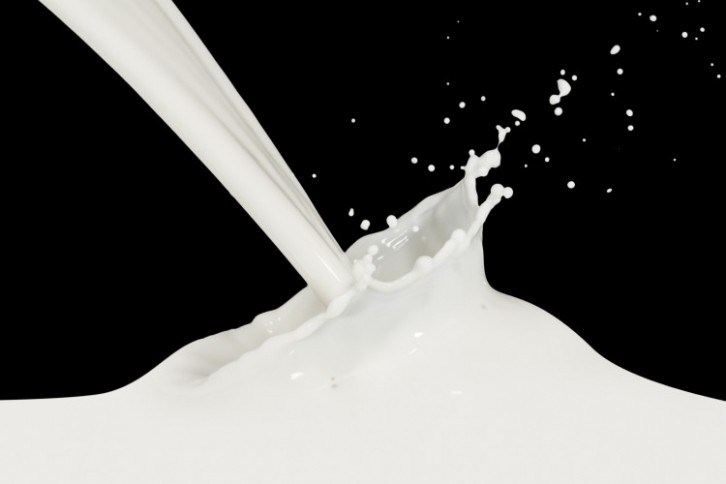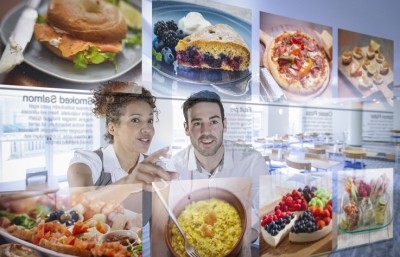With Novozymes' expertise, could Arla be gearing up to enter the precision-fermentation dairy space?

The dairy co-operative’s ingredients division recently announced it has entered into a co-funded partnership with Danish food ingredients and enzyme maker Novozymes. The partnership will see Arla’s food tech knowhow combined with the biotech firm's expertise in precision fermentation, a technique that alters the molecular outputs of microorganisms to enable the creation of complex protein compositions. In the dairy and dairy alternatives space, companies leverage the technology to create ‘dairy-identical’ proteins that can be used to manufacture animal-free dairy products, such as milk and cheese – but regulation and cost remain a significant hurdle in many geographies.
Instead of diving into precision fermentation-derived ingredients for food manufacture, Arla and Novozymes will initially turn their attention to creating solutions for disease-specific medical nutrition. This is a category where protein is considered an essential component and will allow Arla to enhance its medical nutrition portfolio, the company stated.
Speaking to DairyReporter, Arla Foods Ingredients group vice-president Henrik Andersen said of the partnership: “Arla and Novozymes have worked together for many years in the area of protein hydrolysis, and for some time we’ve discussed the opportunity to join forces to pursue opportunities in precision fermentation. We share a common perspective on the challenges we face as we enter this space, and we believe our respective competencies are highly complementary.”
He added: “While dairy and whey solutions will remain our core portfolio, we do see interesting potential to complement our offering for the medical nutrition industry to better meet market needs. As we embark on the journey with Novozymes, I am confident that we will find many interesting opportunities beyond medical nutrition.”
Asked what markets the company would be looking to supply the ingredients into, Andersen said it was still 'early days' and the two firms are focused on product development at this stage. “The initial focus will be on a solution for disease-specific medical nutrition, and a lot will depend on how that develops. Regulatory factors will, of course, also affect where and how quickly we’re able to bring new products to market, but this is also an area where Novozymes and Arla both have solid experience that we can use.”
Scope for expansion into precision-fermentation dairy
With CPG giants such as Nestlé and Danone actively exploring the opportunities precision fermentation can offer in the manufacture of a new breed of dairy alternatives, it begs the question whether this partnership with Novozymes could lead Arla in a similar direction. Arla already markets a range of plant-based dairy products in several European countries, the company stating the segment is ‘a natural extension’ of its traditional dairy-based range. “Arla farmers already grow crops like oats and barley that we can use in the products, and we have the facilities to produce and distribute them along with our other products,” Arla explained in an article on its website. “So why not?” Through its partnership with Novozymes, the dairy co-op has now gained the expertise of a specialist in precision fermentation.
Asked how he felt about the potential of precision fermentation-derived dairy ingredients, and whether he could see commercial scope for Arla to branch into that segment, Andersen did not deny this could be an option. “Precision nutrition is a hugely exciting technology because of the opportunities it offers for ‘designer-made’ proteins,” he told us. “While the primary focus of this collaboration is medical nutrition, we do anticipate possible expansion into other segments in the future.”
However, significant regulatory barriers preclude the development of the precision fermentation sector outside several key markets, including Singapore and the US. In Europe for example, stringent regulations around so-called novel foods mean that it could take years for precision fermentation-derived ingredients to be given the green light by regulators. As a result, some companies have joined forces into advocacy organizations such as Food Fermentation Europe to seek change.
But these hurdles don’t make the segment less appealing to investors – according to Markets And Markets, the precision fermentation market is poised to reach a valuation of $36.3bn by 2030, growing at a CAGR of 48.1% from 2022 to 2030.
Dairy industry giants are also taking notice - in May 2023, Danone reportedly invested in animal-free dairy start-up Imagindairy. Nestlé meanwhile has partnered with US-based precision fermentation specialist Perfect Day, who develops dairy-identical whey protein through the technique. In Europe, the Bel Group acquired a stake in Standing Ovation, a precision fermentation specialist with expertise in animal-free casein.













